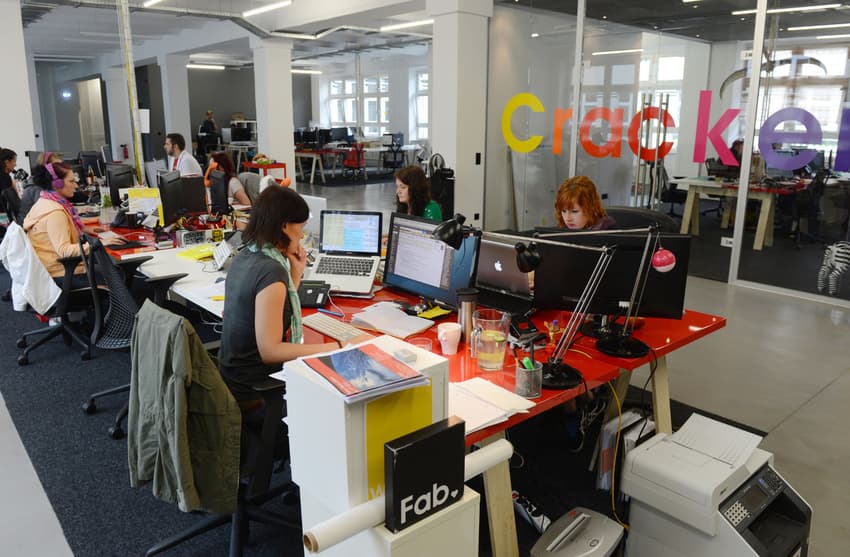Germany to see record 'job boom' in 2017: report

A new report predicts that this year Germany will see a record high in its working population to reach nearly 45 million people in a "job boom", as German media call it.
The Institute for Employment Research (IAB) wrote in its report released on Friday that it predicts the working population to reach 44.3 million people this year, up by 670,000 people from last year.
The report also forecast that the number of unemployed people would drop to about 2.5 million people, or 160,000 fewer than the average in 2016. This would be the lowest level since 1990.
Spiegel Online called the prediction a “job boom” for Germany.
“This positive development would offset the extra amount of unemployment registrations from refugees,” said IAB research leader Enzo Weber in a press statement.
In particular, the report says that Germany will see more people working in the public sector, child care and education, and health services, with an increase of about 270,000 more people in these three fields total.
The one area where the report predicted a decrease was in financial branches, by 20,000 people. This was attributed to consolidation measures within the banking sector as well as the effect of increasing digitalization.
Including those who are unemployed but could get jobs, the potential workforce of the country is also set to be higher at 46.8 million - also a record high.
Immigration is a major reason behind this increased expectation, as well as increases in women and the elderly taking on jobs.
“The potential workforce in 2017 is not growing half as much as the actual working population. Available workers are getting scarcer,” Weber noted.
Companies are also holding onto their employees, with the risk of losing a job at its lowest level since German Reunification in 1990, the report observes.
The prognosis also expects Germany’s real GDP (gross domestic product) to grow by 1.4 percent. In 2016, GDP grew by 1.9 percent. This lower forecast is due in large part to the fact that 2017 has fewer working days - Germany has added, for example, an extra holiday this year in October to celebrate 500 years since Martin Luther sparked the Protestant Reformation.
Comments
See Also
The Institute for Employment Research (IAB) wrote in its report released on Friday that it predicts the working population to reach 44.3 million people this year, up by 670,000 people from last year.
The report also forecast that the number of unemployed people would drop to about 2.5 million people, or 160,000 fewer than the average in 2016. This would be the lowest level since 1990.
Spiegel Online called the prediction a “job boom” for Germany.
“This positive development would offset the extra amount of unemployment registrations from refugees,” said IAB research leader Enzo Weber in a press statement.
In particular, the report says that Germany will see more people working in the public sector, child care and education, and health services, with an increase of about 270,000 more people in these three fields total.
The one area where the report predicted a decrease was in financial branches, by 20,000 people. This was attributed to consolidation measures within the banking sector as well as the effect of increasing digitalization.
Including those who are unemployed but could get jobs, the potential workforce of the country is also set to be higher at 46.8 million - also a record high.
Immigration is a major reason behind this increased expectation, as well as increases in women and the elderly taking on jobs.
“The potential workforce in 2017 is not growing half as much as the actual working population. Available workers are getting scarcer,” Weber noted.
Companies are also holding onto their employees, with the risk of losing a job at its lowest level since German Reunification in 1990, the report observes.
The prognosis also expects Germany’s real GDP (gross domestic product) to grow by 1.4 percent. In 2016, GDP grew by 1.9 percent. This lower forecast is due in large part to the fact that 2017 has fewer working days - Germany has added, for example, an extra holiday this year in October to celebrate 500 years since Martin Luther sparked the Protestant Reformation.
Join the conversation in our comments section below. Share your own views and experience and if you have a question or suggestion for our journalists then email us at [email protected].
Please keep comments civil, constructive and on topic – and make sure to read our terms of use before getting involved.
Please log in here to leave a comment.